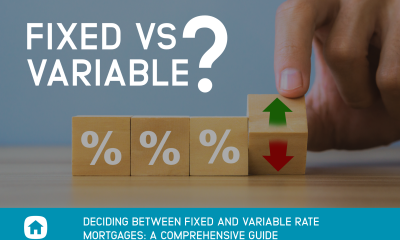(Special) – As technology and automation change the workplace dynamic, more and more Canadians are turning to flexible and part-time work and experiencing the income uncertainty which often comes with those forms of employment.
Although about two million Canadians currently are categorized as temporary workers, income volatility is nothing new.
Some of the oldest occupations like fishing and farming traditionally have had unpredictable earnings and income flows. However, a shift to the so-called gig economy — short-term, task-oriented employment — is making it increasingly difficult for many people to know where their next paycheque is coming from, how much it will be and how they can save for retirement and other purposes.
In a new report the Chartered Professional Accountants of Canada (CPA Canada) has found that more than a third of Canadians reported volatility in their monthly incomes, whether it is the source of the money, the amount they will be receiving, or both. It also showed that uncertain income puts people at greater risk of financial calamity and makes it harder to effectively budget and save.
“Seasonal workers have been dealing with this for years, but the changing nature of the workplace has made this a much broader issue affecting a lot more people in recent years,” Francis Fong, chief economist at CPA Canada, said in an interview.
The study found that income volatility is linked to lower levels of financial knowledge and capability, often leading people to conclude they have no personal control over their financial situation.
People with volatile incomes have trouble keeping track of their money and planning ahead, making it more difficult for them to make ends meets than for people who, while they may have lower incomes, know what they are getting and when.
The report found that women are more likely to report volatility than men, that some volatility declines with age and that volatility is more prevalent among people with incomes between $30,000 and $50,000. As well, volatility is more prevalent among those who are separated or divorced, those who receive social assistance and those with only a high school diploma.
Volatility in general is associated with lower levels of financial knowledge, capabilities and beliefs.
Fong believes Canadians increasingly are being made to shoulder the responsibility for saving for their own retirement.
Besides government assistance programs such the Old Age Security and Guaranteed Income Supplement, many gig-economy workers have no registered pension plans and have to pay into the Canada Pension Plan themselves and then save for their retirement in private Registered Retirement Savings Plans, Tax Free Savings Accounts and/or non-registered savings or investment accounts.
The CPA believes its study highlights the need for public policy planners, financial institutions and those engaged in financial literacy education to develop new approaches to help Canadians who experience unstable income streams.
“More and more we are seeing the responsibility to save for retirement being put on the shoulders of the individual, but changes in the labour market are a barrier to that,” Fong says. “The sole focus cannot be on overall earnings. We need programs and strategies that either help people achieve a more consistent income flow or better enable them to cope with the problems and uncertainties that are associated with income volatility. Education is the key.”
Talbot Boggs is a Toronto-based business communications professional who has worked with national news organizations, magazines and corporations in the finance, retail, manufacturing and other industrial sectors.
Copyright 2019 Talbot Boggs
Talbot Boggs , The Canadian Press

 Buying a Home5 years ago
Buying a Home5 years ago
 Credit6 years ago
Credit6 years ago
 Business4 years ago
Business4 years ago
 5 Mortgage Secrets7 years ago
5 Mortgage Secrets7 years ago
 Buying a Home6 years ago
Buying a Home6 years ago
 5 Mortgage Secrets6 years ago
5 Mortgage Secrets6 years ago
 News12 months ago
News12 months ago
 Business4 years ago
Business4 years ago





